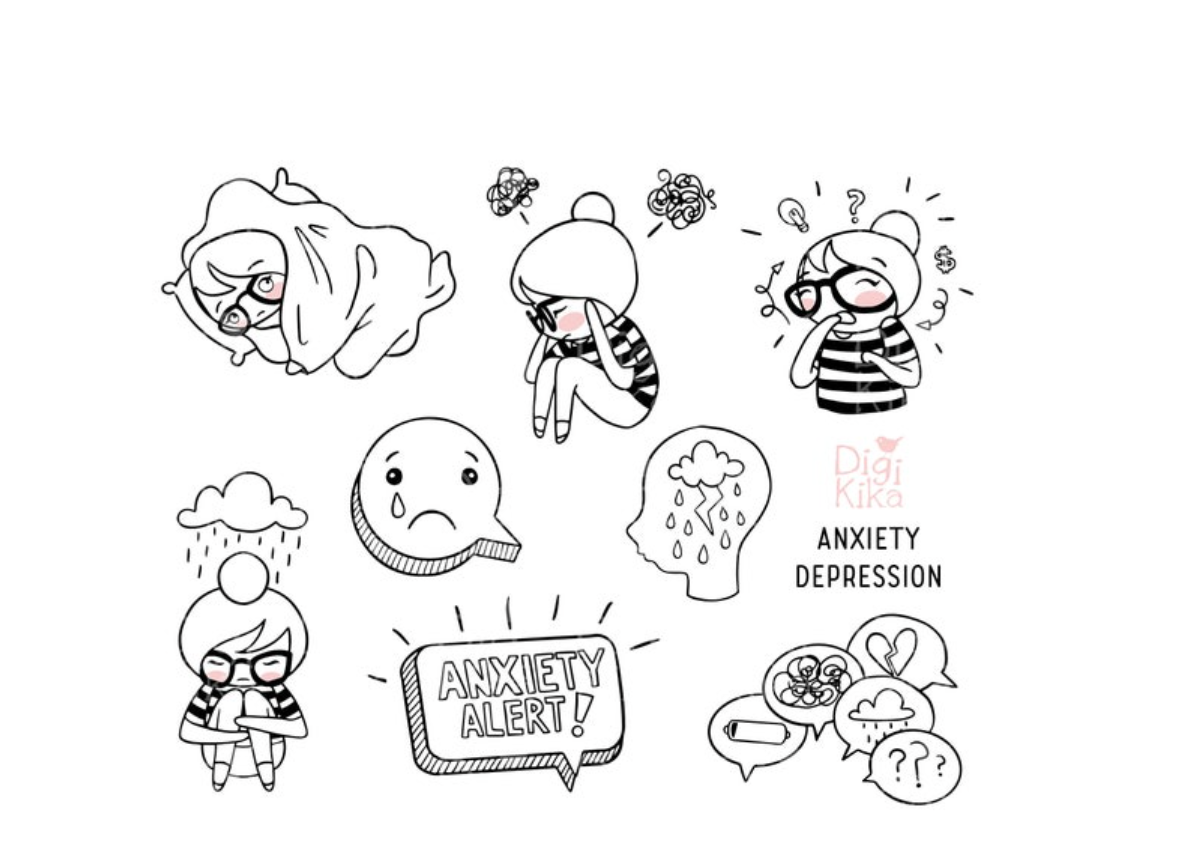Oftentimes, when people hear that someone has a health issue, they think the person has something physical, such as a cold or a broken bone. However, in addition to these common issues, there are mental health problems, which are not talked about, but just as important.
For example: Imagine you suddenly have several different assignments to get done, but very little time to do them. Some people may be able to handle it all calmly, some may not care, or go with the flow. Others, however, may have a very adverse reaction to it. They may panic, understandably, at everything they need to do, and start to feel bombarded and attacked. These are some signs of anxiety, when people experience tense and excessive worry/fear, a condition that is often generalized or ignored.Anxiety can take several forms, including generalized anxiety disorder (GAD), panic disorder and social anxiety disorder.
GAD is characterized by persistent and excessive worry about day to day occurrences. People with GAD experience intense, chronic worry about various aspects of their lives, even when there is no apparent reason. Along with worry, GAD may cause physical symptoms that worsen their overall well being and exacerbate their anxiety. Unlike other specific phobias that are connected by a particular trigger, GAD is associated with a general feeling of unease.
Panic Disorder is characterized by a sudden episode of intense fear that triggers several physical reactions when there is no real danger or apparent leading to constant worrying about when the next one will occur. These episodes often lead to feelings of impending doom and loss of control. A third common form of anxiety is Social Anxiety Disorder which is characterized by an Intense fear of socializing and rejection, or being viewed as awkward, but do not often show common signs of anxiety. Despite that, social phobia can disrupt someone’s life and impact relationships and ability to perform in a work environment.
When not diagnosed and treated, anxiety can lead to complications including development of specific phobias, avoidance of social gatherings, depression, misuse of alcohol and drugs as a form of self-treatment. The consequences can, therefore, be life threatening.
However, just like any physical illness, anxiety is very treatable. There are several medications that can be taken for it, which influence emotions and thought patterns. Antidepressants and anti-anxiety medications can be effective in managing symptoms for some patients.
In addition, unlike physical illnesses, anxiety can be treated by talking, not just through modern medicine. Psychotherapy is when people talk to a trained therapist, which helps with navigating issues and exposing triggers. In addition, regular exercise and stress management techniques can also reduce anxiety.
While medication and professional therapy helps anxiety, talking with friends and family can also help. If people feel safe enough to share their anxieties, their fears, then they are less likely to keep it to themselves.


